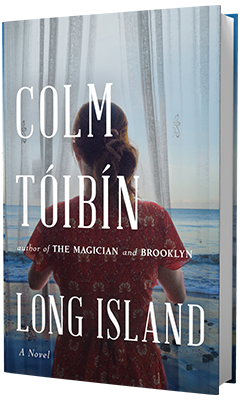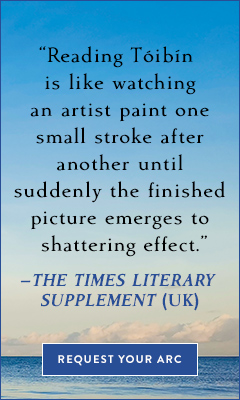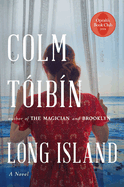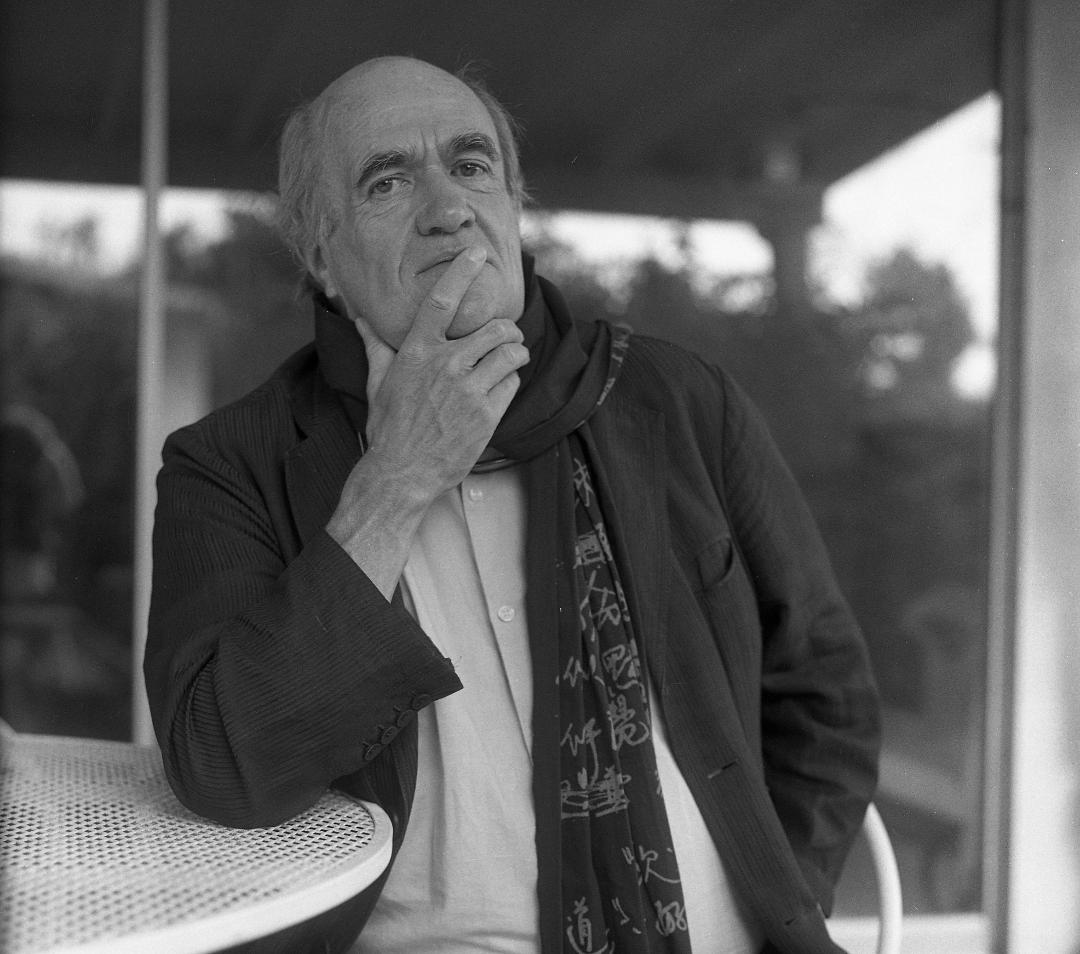Long Island
by Colm Tóibín
Long Island--the latest novel from legendary author Colm Tóibín, and the sequel to his bestseller Brooklyn--opens with an irresistible shock, immediately pulling those who loved Brooklyn (and new readers) into the familiar but altered orbit of Eilis Lacey. The heroine's story continues in a book published 15 years after the first, and set a few decades after that novel's events, with Eilis headed back to her home country of Ireland.
Tóibín elegantly spritzes the events of Brooklyn throughout his sequel, establishing Eilis's emigration from Enniscorthy, Ireland, to Brooklyn, N.Y., in the 1950s, when she met and fell in love with a handsome young Italian, Tony Fiorello. Long Island leaps forward to the 1970s, when readers encounter Tony and Eilis together on a cul-de-sac in Lindenhurst, Long Island, where almost the entirety of the Fiorello family lives within yards of one another. Tony works as a plumber, and Eilis as a bookkeeper. The couple now have two children, teenagers Larry and Rosella, who admire their Italian heritage and are close with their Italian relatives. But they have no connection to their Irish family, and neither, indeed, does Eilis. She hasn't traveled home to Ireland since her sister's funeral decades ago, when she first met local boy Jim Farrell. Back then, she fell in love with him, too, only leaving him when her undisclosed marriage to Tony threatened to become public knowledge.
In Long Island, Eilis keeps thoughts and secrets to herself, even as her surrounding Italian relatives think "it strange for someone to spend her life so far away from her family." Tóibín writes, "In the evenings sometimes [Eilis] spoke about home over dinner.... But Tony and Rosella and Larry had no real interest in Enniscorthy, or even Ireland."
It is under these isolating circumstances that a stranger (intriguingly, an Irish one) arrives on Eilis's doorstep, and announces that his wife is having a baby--and that this baby's father is Tony. As such, the man plans to dump the infant on Eilis's doorstep as soon as it's born. Eilis digests this information with her signature cryptic resolve, which itself throws an almost comically contrasting light onto the impact of her actions. Eilis decides she, too, will have nothing to do with her husband's child, no matter his remorse. Here, Tóibín perfectly balances tone and intention, as Eilis tells Tony, "'There are no circumstances under which I am going to look after a baby. It is your business, not mine.'
'Maybe you don't want to be,' he said softly, 'but you are married to me.'
'It's a pity you didn't think of that when you were out fixing leaks.' "
This draws Eilis once more to Enniscorthy, where she hopes not only to escape the humiliating prospect of the infant on her doorstep but also to reconnect with the person she once believed herself to be. She has sacrificed her history to provide a fresh one for her children, and in realizing what she's given up--and how she has since been treated--she finally indulges in something like regret. But returning to Ireland presents its own dissonance when she once again encounters Jim Farrell, as yet unmarried. This time, it's Jim who chooses which realities to omit: he is quietly courting Eilis's former best friend, Nancy, and intends to marry her the coming spring. But neither Jim nor Nancy reveal this to Eilis until their agonizing love triangle comes to a head.
Nancy serves as a fascinating foil to Eilis. As the latter deals with the repercussions of her own inscrutability, Nancy forges a new future for herself, making concrete plans with (and sometimes without) Jim's input or endorsement. Both are women frustrated by their male-dominated surroundings, and so they make their moves carefully, but rarely do those moves work in their favor.
Long Island, like Brooklyn before it, works well as a standalone, even if it's now officially one half of a duology. It is a story of transformation, but equally of doubt--of what remains unsaid and undecided, and how it wreaks havoc on not only the characters' relationships but their identities. Jim wants to become a married man, but he isn't sure how to do it. Nancy wants a new, emboldened life away from her fish and chips shop, but she isn't entirely convinced Jim will follow. And Eilis herself is a cipher as a sort of self-fulfilling prophecy: she becomes what others see in her, whether an Irish outsider, a glamorous New Yorker, or a long-lost lover who's finally returned to set the world to rights. Long Island approaches these themes with Tóibín's deft eye for detail, creating a story that is altogether painful and maddening to witness--and yet impossible to turn away from. --Lauren Puckett-Pope








